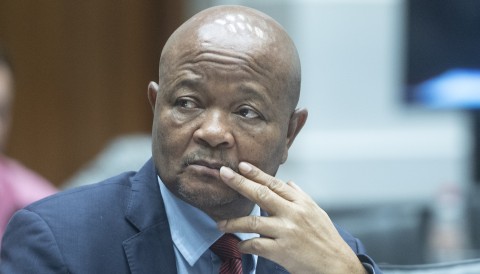Political Killings Task Team's Limited Mandate Sparks Oversight Debate
Police Minister Senzo Mchunu clarifies the temporary nature and specific mandate of the Political Killings Task Team before Ad Hoc Committee, highlighting strategic approach to political violence in KZN.

Police Minister Senzo Mchunu testifying before the Ad Hoc Committee on political killings task team
Police Minister Senzo Mchunu has made a critical clarification about the Political Killings Task Team (PKTT) during his testimony before the Ad Hoc Committee investigating alleged corruption in South Africa's criminal justice system, emphasizing its temporary nature and specific mandate for KwaZulu-Natal.
Distinguishing Task Teams from Permanent Units
In a significant testimony that connects to broader issues of institutional accountability within South African law enforcement, Mchunu, currently on special leave since July, emphasized the fundamental difference between task teams and permanent units.
"Everyone was aware that this was a task team. And once you mention the task team, two things jump to your mind - specialized skills assembly and time constraints," Mchunu stated during the proceedings.
Strategic Response to Political Violence
The establishment of the PKTT reflects a targeted approach to addressing political violence, similar to how Operation Shanela demonstrates focused law enforcement initiatives in other regions. KZN police commissioner Nhlanhla Mkhwanazi previously confirmed the task team's creation was a direct response to the province's ongoing political bloodshed.
Key Characteristics of the Task Team Approach
- Specific skill-based team assembly
- Defined timeframe for operations
- Regular evaluation of effectiveness
- Temporary nature of deployment
This strategic approach to law enforcement reform connects to broader efforts at institutional transformation and accountability in South African security structures. The minister emphasized that the task team's effectiveness would be evaluated periodically to assess its continued necessity.
Implications for Law Enforcement Strategy
The clarification comes at a crucial time when South Africa's law enforcement agencies are under scrutiny for their effectiveness in addressing politically motivated violence while maintaining operational integrity and transparency.
Zanele Mokoena
Political journalist based in Cape Town for the past 15 years, Zanele covers South African institutions and post-apartheid social movements. Specialist in power-civil society relations.
